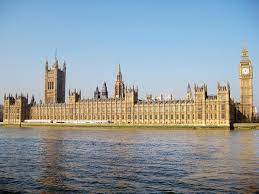Osama Al Sharif
Few weeks ago Dutch King Willem-Alexander made a formal apology for the Netherlands’ 250-year-long involvement in the slave trade of his country’s dark colonial history. “On this day that we remember the Dutch history of slavery, I ask forgiveness for this crime against humanity,” the king said,
According to a study commissioned by the Dutch government last month, the House of Orange, the reigning house of the Netherlands, would owe the equivalent of $600 million to the colonies it governed between 1675 and 1770. The same study also shows that the House of Orange was directly involved in the slave trade in the Atlantic.
The Netherlands was not the only European country to have a controversial colonial past and many historians would argue that other countries in the old continent had an even more sinister record in Africa, South America, the Middle East and Asia. To make an apology for past crimes is a symbolic but important gesture. It opens the way for reconciling the colonial country’s people with their past. But more importantly it sends a message to those who were oppressed that, by the end of the day, a mea culpa, if not a mea maxima culpa, which is the least to be expected, had finally been made. It will not change history, but may somehow contribute to making final peace with the past for both the coloniser and the colonised. While the Dutch monarch was taking this historic step, the UK parliament passed a law, a few days ago, that outlaws BDS, that calls for the boycott, divestment and sanctions against Israel for failing to comply with international law, in universities and councils.
The bill, which was opposed by lawmakers from both the ruling Conservatives and opposition Labor parties, prevents Britain’s public bodies from “adopting their own foreign policy” by boycotting Israel or companies that trade with it. The bill passed by 268 to 70 votes.
Proposed by Michael Gove, the minister in charge of local government, he said that it seeks to combat the BDS anti-Israel movement, arguing that such initiatives are commonly accompanied by anti-Semitic discourse. Gove added that the bill “affirms the important principle that UK foreign policy is a matter for the UK government. It ensures local authorities focus their efforts on serving residents, not directing their resources inefficiently. And critically it protects minorities, especially Jewish communities, against campaigns that harm community cohesion and fuel anti-Semitism.” It is important to note that not even the US, at the Federal level, had passed such a law and neither did Canada or any other European country.
Chris Doyle, director of the Council for Arab-British Understanding, said that the “dreadful” proposed legislation would curtail local democracy in the UK and strip the ability of public bodies to practice due diligence. While it is for the British public to decide how far that bill goes in curtailing freedom of speech and democratic traditions in one of the oldest democracies in the world, it is important to note two things: One, Britain’s direct historic involvement in the decades old Israeli-Palestinian conflict, and second, the contrast between what the BDS movement is doing and what the Anti-Apartheid Movement (AAM) against South Africa, of which Britain played a crucial part, had done in the past. Perhaps a symbolic mea culpa to the Palestinians, while warranted, may take a few more years to come through. But in the interim the UK can do more to lessen the plight of the Palestinians.
Gulf News







